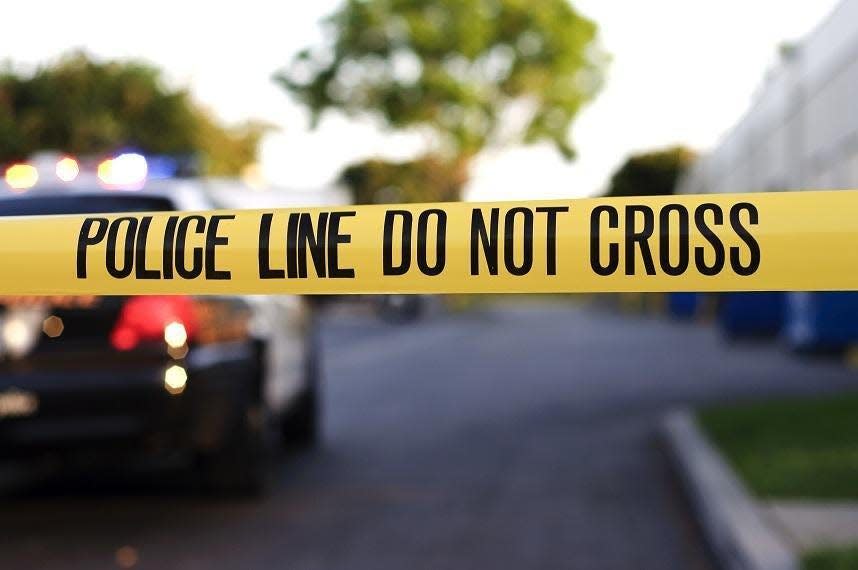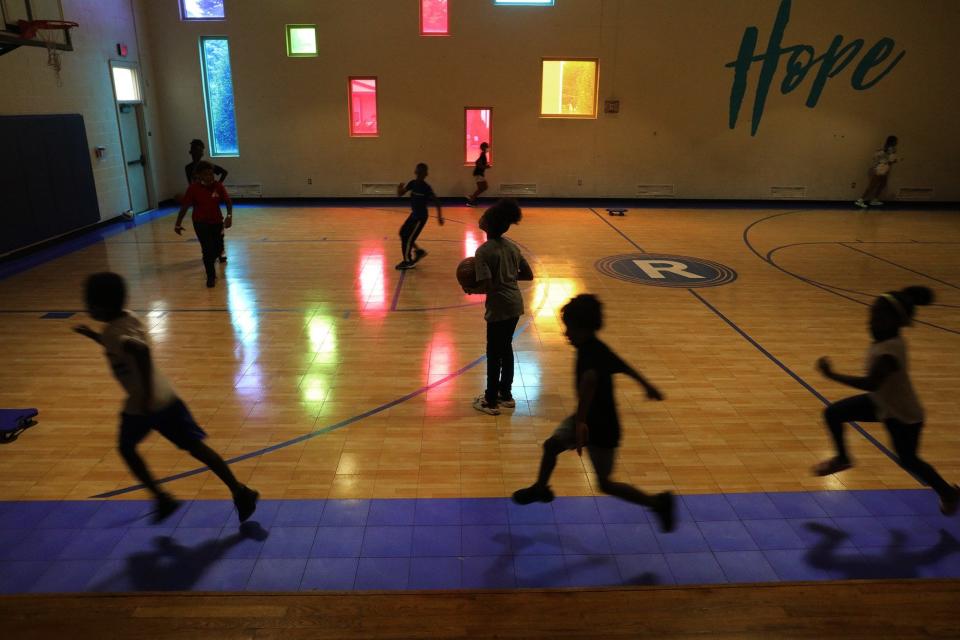Columbus 'Kia Boys' tragedy cuts deeper than idea of deviant kids stealing cars| Opinion

Jewel Woods is the founder and clinical director of Male Behavioral Health and the Center For Men & Boys. His publications have been featured in both academic publications and popular new media including Essence Magazine, Ebony Magazine, Ms. Magazine, The Huffington Post, The Dallas Morning News, The Cleveland Plain Dealer, and The Philadelphia Inquirer.
What was your reaction when you learned that the 14-year-old boy that was involved in a near-fatal car accident was also involved in a car accident that resulted in the death of two of his 14-year-old friends just a month prior?
Was your immediate reaction a mixture of astonishment, sadness, and frustration? Did it cause you to text “SMH” ('shaking my head") to a friend or family member?
Or was your immediate reaction to question what was it about this young man’s life that witnessing the death of his two friends was not enough to stop him from participating in the same behavior?
More:Two 14-year-old boys killed in overnight crash involving stolen car, another hospitalized
Deviance or despair?
The case of the "Kia Boys" will likely cause many adults to come to terms with a range of emotions over time as news reports of these incidents continue to emerge. Continued news coverage will also likely force many adults to address whether they view these behaviors as representing deviance or despair.
The high visibility of these rule-breaking behaviors will allow many adults — Black and white — to view the behaviors of the "Kia Boys" as deviant.
More:Our view: Columbus must crumble the colossal walls blocking progress of Black girls
One of the problems with viewing these behaviors as deviant is that it ignores the clinical implications for Black youth who were disproportionately exposed to traumatic loss associated with community and neighborhood violence, and the racial inequities associated with COVID-19 pandemic.
Research demonstrates, for example, that exposure to neighborhood violence is linked to negative mental health outcomes including symptoms of post-traumatic stress disorder (PTSD) in children and adults. Similarly, research has also demonstrated that the police killings of unarmed African Americans have adverse effects on mental health among African American adults and adolescents.
More:Despite declining arrests and detention, racial disparity among juvenile offenders remains
More:How to submit guest opinion columns to the Columbus Dispatch
However, perhaps the biggest problem with viewing the behaviors of the Kia Boys as simply deviant and in isolation is that it fails to take into account the tremendous amount of suffering and despair currently happening among Black males.
Trauma and grief
Black men and boys are losing hope and their lives at a staggering rate in American society. Black men had the highest increase in suicide attempts between 1991 and 2019 - 162% - compared to all other racial and ethnic groups. The same study showed a 62% increase in suicide attempts for Black women.
A report by the Congressional Black Caucus noted that while the suicide rate for high-school aged Black boys and Black girls both rose 73% between 1991 -2017, the injury rate for Black boys rose by 122%. Taken as a whole, what makes the experiences of Black males like the "Kia Boys" different from any other racial and ethnic group is their simultaneous exposure to a significant amount of trauma and an unparalleled amount of unaddressed grief.
More:In Black and White | Jewel Woods works to improve mental health of Black males
Trauma and grief are often thought of as being one and the same, but there are important differences. Perhaps the biggest difference between trauma and grief is the change in meanings toward life and death after the experience of loss. After the loss of a loved one, it is not unusual for people to develop an attitude of bitterness toward life and a sense of futility toward death.
Maya Angelou perfectly captured how devastating this could be for Black youth when she lamented, "There is nothing so pitiful as a young cynic because he has gone from knowing nothing to believing nothing."
More:Despite declining arrests and detention, racial disparity among juvenile offenders remains
Unaddressed grief can cause a constellation of symptoms and lead to reckless and lethal behaviors. In my experience, the deep yearning, numbness, need for belonging attachment, anger, lack of impulse control, and lack of belief in the future we see among Black youth are often the direct result of their severe sense of loss.

More:Game Over: Central Ohio law enforcement working together to stop teen thieves
We owe it to our youth to go beyond easy explanations for negative behaviors and offer solutions besides typical criminal justice system responses like Operation Game Over. If we only respond to the behaviors and not the causes behind them, we will be adding to the traumatic loss that many Black youth already feel. For them, and for our communities, we must find a way to grieve in order to restore hope in the future.
Jewel Woods is the founder and clinical director of Male Behavioral Health and the Center For Men & Boys. His publications have been featured in both academic publications and popular new media including Essence Magazine, Ebony Magazine, Ms. Magazine, The Huffington Post, The Dallas Morning News, The Cleveland Plain Dealer, and The Philadelphia Inquirer.
This article originally appeared on The Columbus Dispatch: Jewel Woods: What are solutions to healing grief, trauma in Black males

